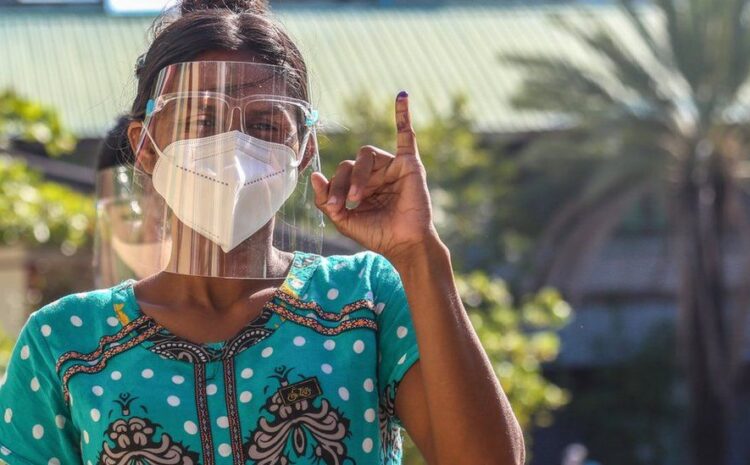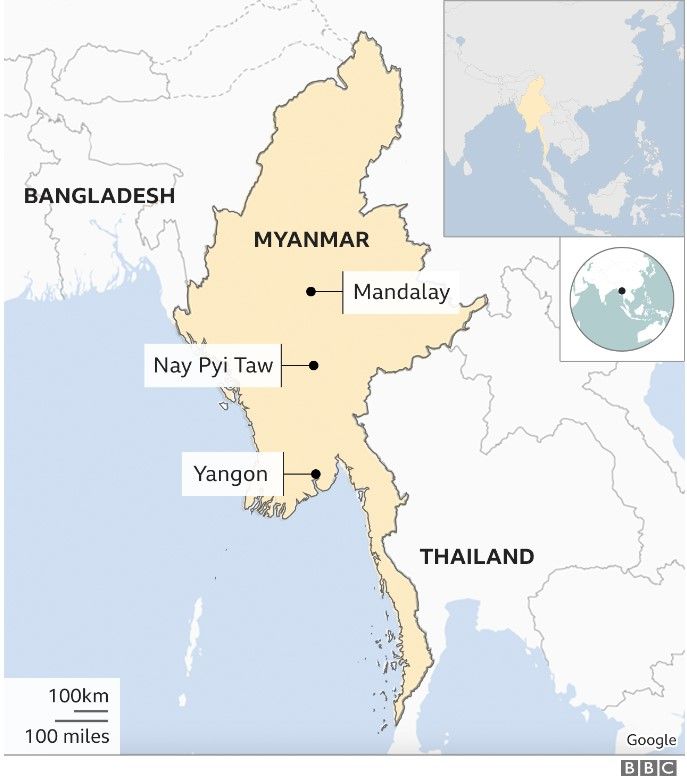
IMAGE COPYRIGHT GETTY IMAGES image caption Some 27 million people took part in November’s vote, electing Aung San Suu Kyi
The Asian Network for Free Elections said the outcome of the vote was “by and large, representative of the will of the people of Myanmar”.
The military has justified its February coup by alleging massive voter fraud, but provided no evidence.
The vote was won by Aung Sang Suu Kyi’s National League for Democracy.
Ms Suu Kyi and other elected officials were arrested on 1 February in a series of early morning military raids. She has only been seen by video link since.
The election observers’ report described the military’s decision to ignore the election results as “indefensible” .
The Asian Network for Free Elections, which had observers at more than 400 polling stations during November’s vote, did acknowledge a number of “irregularities” in how the vote was held – but the said they were caused by the Covid-19 pandemic and a number of conflicts in the country at the time.
But the outcome did represent the will of the people, the report concluded, and showed Myanmar’s democracy was making progress.
“Despite the raging Covid-19 pandemic, 27.5 million people voted thanks to the hard work of polling staff and election or health officials; their voices cannot be silenced,” the report said.

Myanmar in profile
- Myanmar, also known as Burma, became independent from Britain in 1948. For much of its modern history it has been under military rule
- Restrictions began loosening from 2010 onwards, leading to free elections in 2015 and the installation of a government led by veteran opposition leader Aung San Suu Kyi the following year
- In 2017, Myanmar’s army responded to attacks on police by Rohingya militants with a deadly crackdown, driving more than half a million Rohingya Muslims across the border into Bangladesh in what the UN later called a “textbook example of ethnic cleansing”


